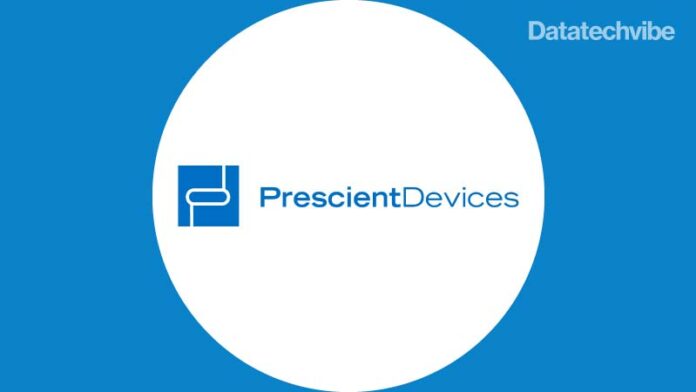Boston-based Prescient Devices closed a $2 million seed round as it looks to help companies move more quickly on their IoT plans.
The round was led by Z5 Capital, with several angel investors participating.
Prescient Devices’ software provides a low-code framework that allows companies to build IoT and edge computing initiatives that can scale, without the need to build their own software solution on top of cloud architecture. In essence, the company provides a programmable IoT infrastructure right out of the box — allowing companies to connect devices for things such as remote monitoring and industrial automation.
‘Every company wants IoT, but can’t figure out how to do it’, said co-founder and CEO Andy Wang.
Founded in 2018, Prescient Devices worked on its technology for a couple of years before entering into production last July with a half-dozen customers in verticals such as insurance and manufacturing.
Also Read: Data Analytics, Powering the IoT Evolution
‘The software is simple to use, but the technology is quite complex’, Wang said.
While Prescient Devices’ cloud software allows users to have a programmable, complete IoT solution, the company does not make the adjacent hardware, Wang said. Instead, the company partners with several hardware manufacturers, creating fully compatible sensors and edge devices, he added.
Prescient Devices expects to use the new seed funding for both sales and marketing, as well as research and development. The money also will help support the company’s new free version of its software, which just debuted this year. The free version lets data scientists at companies connect a couple of devices to experiment with the software, Wang said. The new community edition already is being used by about two dozen companies.
Wang said depending on adoption and growth, the company may look for a Series A as early as late this year – or possibly in the first quarter of 2022.
Competition
While Prescient Devices looks to grow, the IoT market provides competition. Startups such as Losant and Crosser also have offerings to help companies jumpstart their IoT efforts, but do not offer complete solutions that are as simple and scalable as Prescient’s, Wang added.
The company also competes with the large cloud providers such as Amazon and Microsoft, which help companies build out IoT initiatives but rely on a company creating its own underlying software which can be expensive, Wang said.









